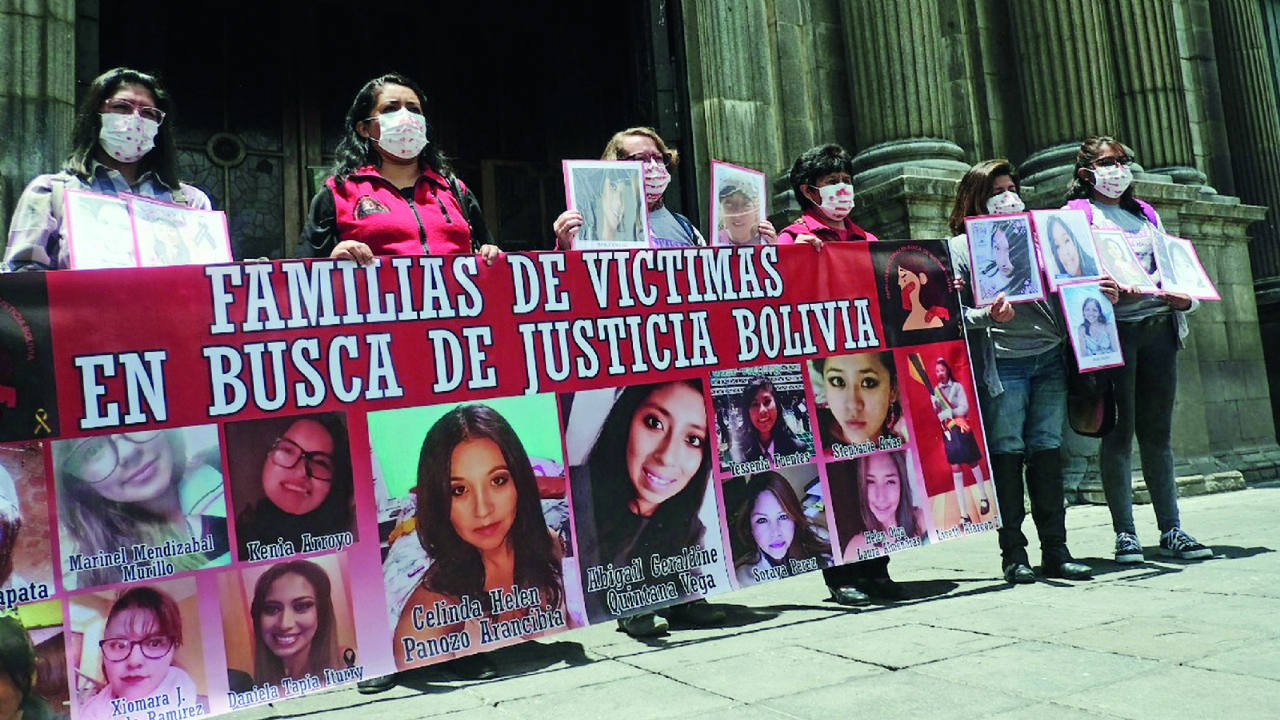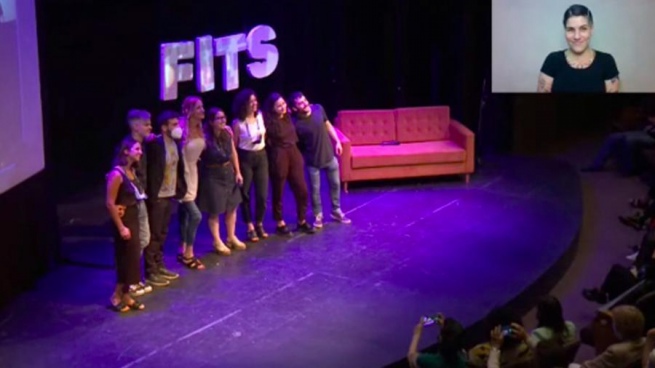Verónica Zapana S. / La Paz
A week ago, Keyla was passing through Figueroa Street when she was intercepted by one of her friends. After an argument, he took a knife out of his pocket and murdered her in cold blood at the sight of the people passing through the place.
The young woman bled and died during her transfer to the Hospital de Clínicas. On Monday, Monica was beaten to death by her husband. On Thursday, Viviana lost her life after being in a vegetative state for seven months due to the blows of her partner. All three cases were reported in the department of La Paz. So far this year, Bolivia has already added 102 cases of femicides.
This panorama has not changed in recent years. Since 2015, Bolivia has exceeded 100 cases of femicides per year. According to specialists, this situation occurs due to at least four factors, ranging from a lack of budget to a lack of specialists to care for victims of violence.
According to data from the Gender Observatory of the Women’s Coordinator, in 2015 there were 110 cases of femicides; in 2016, 111; in 2017, 109; in 2018, 130; in 2019, 117 and in 2020, 113. Although 2021 did not end, the country already reported 102.
Photo: Carlos Sánchez / Page Seven
According to the founder of the Free Voices Foundation, Mercedes Cortez, this high number of femicides “is the result of the State’s neglect of an issue that should be a priority: the fight against violence.”
With a similar stance, the director of the Women’s Coordinator, Tania Sánchez, assured Página Siete that femicide is the consequence of a life of constant violence.
“Violence is a structural problem of a patriarchal system of men who subordinate women and the relationship between them. Historically, this patriarchal system has been built on the body of women, since the greatest expression of this system is machismo that is exercised through violence in all its forms, ”explained Sánchez.
According to the representative of the Coordinadora de la Mujer, violence is a demonstration of the unequal power relationship that exists in our society and is supported by a patriarchal, capitalist and colonial system.
Cortez, the representative of the Free Voices Foundation, recalled that the State assumed international commitments and that they became law – such as the Convention on the Elimination of All Forms of Discrimination against Women (Cedaw, for its acronym in English) – but there is still no progress in reducing cases.
With the implementation of Law 348 to Guarantee Women a Life Free of Violence – in force since 2013 – “not only the reduction, but also the eradication of violence against women, the punishment, persecution and even reparation of the damage to the victim. However, all this remained in theory ”.
Cortez indicated that this rule was never applied as it should because until now there are no specialized judges in violence and the few that exist in the country are mixed judges who take cases of corruption and violence against women.
In addition, the courts and judges – in charge of sanctioning with a sentence are not specialized in violence either. “Fewer there are specialized forensic doctors,” he said.
“That is to say that women have had to enter the routine and the ordeal that a criminal process implies. They have mixed the cases of violence and femicide in the same bag. This situation means that a criminal process has to last up to six years or more in all its instances, so that 98.7% of women victims of aggression abandon their processes and return to the circle of violence and become potential victims of violence. femicide ”, he indicated.
The founder of Mujeres de Fuego, Ángela Nogales, said that unfortunately the women must arrive almost dead to report and access a forensic evaluation. “In order for a process to begin, many times the Special Force to Fight Violence (Felcv) is called and arrives late. Even when the woman is already being picked up to take to the IDIF, ”he said.
When a woman decides to report, she receives bad attention from officials. “There is no quality and warmth at the time of filing the complaint,” Nogales explained to this media.
The president of the Association of Femicide Victims, Estela Quintana, affirmed that another problem is that although the woman knows that this rule exists, she does not know it. “The vast majority of women do not know the 16 types of violence set forth in Law 348. So, if they do not know, they do not report,” he said.
If some dare to report, they run into a bureaucratic system. They must wait a long time for the medical evaluation and the determination of the days of disability, according to Quintana.
Some victims do not report because of the language. “Many women speak a native language, but unfortunately the staff cannot give them attention,” Quintana explained.
When they want to call the police to file a complaint, they don’t know the phone lines either. “The digits to make the complaint have eight numbers, but no one is going to memorize it, less in a (complex) moment. For that reason it is important that they change the number to a three-digit number, “said the representative of the families and assured that the lines should be known at the national level.
Cortez argued that due to these shortcomings, only 1% of cases are sanctioned. “In other words, 99% are unpunished,” he added.
In the rest of the cases, the aggressor saw that it is easy to make the victim withdraw the complaint or desist from the process. “They have found criminal figures that do not exist,” he explained.
For example, the aggressors make the victims indicate through a memorial that they invented the complaint. “This generates greater impunity because the aggressor does not feel the weight of the law and of justice,” he said.
He explained that the cycle of violence grows and spirals, until it reaches the maximum expression that is femicide.
Article 76 of Law 348 establishes alternative sanctions in cases of aggression. The first refers to compulsory community work, such as cleaning parks, squares and buildings. The second consists of house arrest on the weekend, but it does not apply.
According to Nogales, it is also urgent to have specialized and trained personnel in the SLIM (municipal comprehensive legal services) and in the Public Prosecutor’s Office. In addition, legal chicanery should be avoided in the courts.
“Although the family of a victim of femicide has made a pilgrimage and when it finally reaches a trial, it is suspended because there is no lawyer, because they have not notified and because the witnesses were not,” said Nogales and assured that the fact of Not respecting the procedural deadlines represents a fatigue.
Despite all the problems, Sánchez indicated that Law 348 had some positive changes: now the death of a woman is recognized for being a woman and is called femicide. But the activist explained that the application of the norm focuses more on the punitive issue ”. “There is a lack of work – from the government, civil society and the media – on prevention,” he added.
“It is striking that now the violence, aggressiveness and rage with which femicides are carried out is very high. It feels as if it were a confrontation because that power loss is being challenged, ”Sánchez added.
The specialists agreed that it is important to strengthen the health and education systems, as well as to improve the treatment of this crime in the media to prevent violence from being naturalized. In addition, according to the experts, greater resources should be allocated to improve the service of attention to this problem. They indicated that it is urgent to change Law 348 and that there is already a proposal.
The president of the mixed commission that investigates the delay of justice in cases of femicides, Estefanía Morales, said that it is expected that in 2022 that proposal will be incorporated to reform this norm and thus accelerate the processes.
He recalled that a week ago a request for an oral report was presented to the president of the Court of Justice and the attorney general to speed up the processes that are in the preparatory stage and others in a trial. “It should be noted that we are coordinating,” he said.
The aggressiveness and rage with which femicides are carried out is striking. They are increasingly cruel
Tania sanchez, director of the Women’s Coordinator
.
















